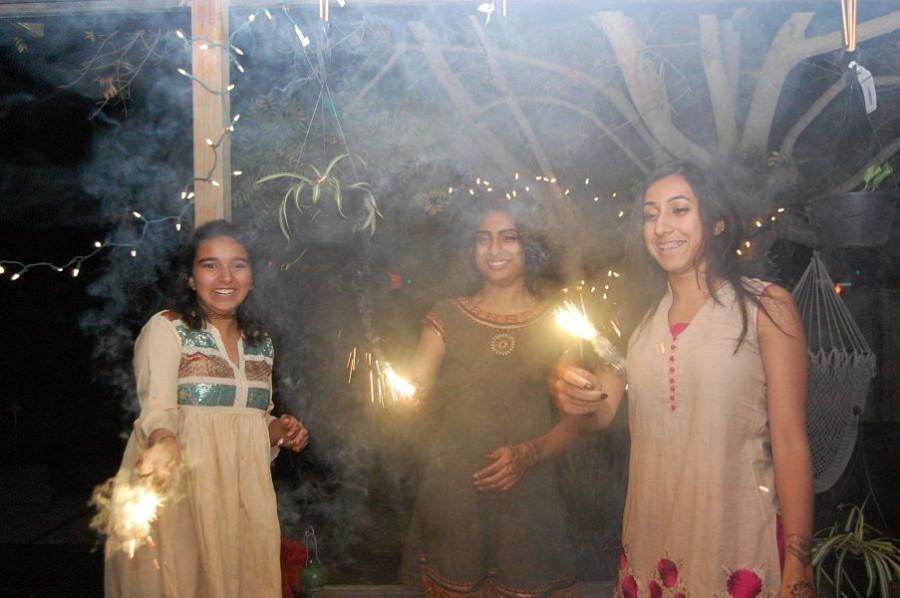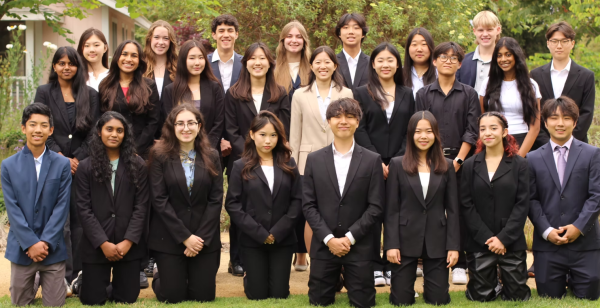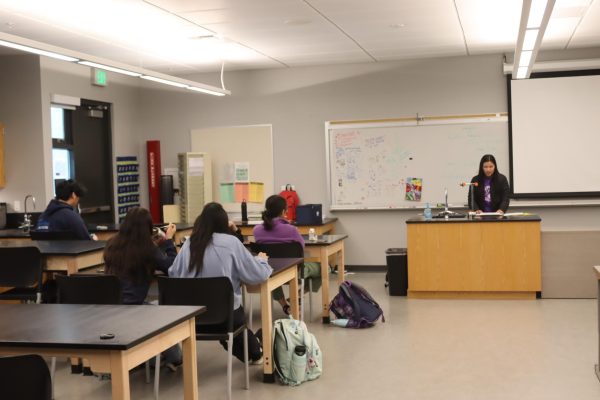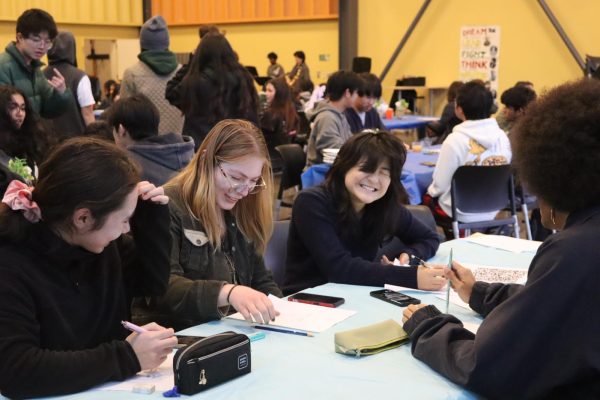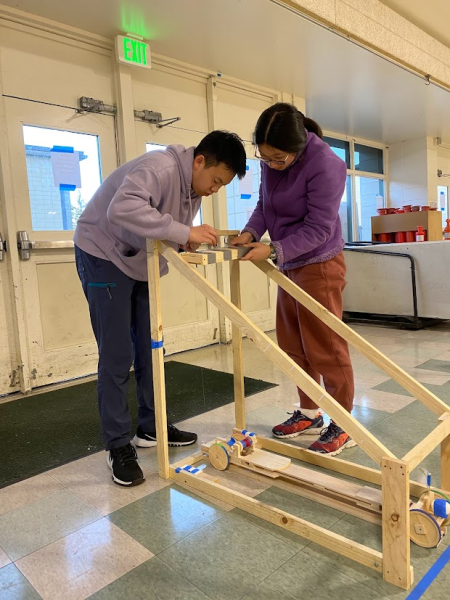Lighting the way
Diwali opens up conversation and understanding
Photo by Alisha Parikh
From left to right, Maryam Chenna, Savita Sastry and Koodrut Panesar celebrate Diwali with sparklers
Diwali, the Festival of Lights, marks the return of the deity Rama from his 14-year exile after defeating his enemy, Ravana. Rama’s homecoming was celebrated with the lighting of candles and lamps, which is a tradition still celebrated today. Seniors Shriya Ghosh and Koodrut Panesar, who both used to live in India, said the festivities there were much grander and widespread than here.
Ghosh said that her large family would go all out, which encompassed cooking luxurious foods and sweets specifically for Diwali, decorating their mandir, or temple, with lamps and sweets, then eating together.
At night, she said, children and other families would come out and play with firecrackers. These festivities would be carried out for almost three days.
After moving to the U.S., Ghosh, Panesar and senior Manisha Ummadi have made their celebration more intimate but, they continue to celebrate Diwali traditionally.
Panesar said her family keeps the day of Diwali free since the weeks before and after, dubbed ‘Diwali month,’ are typically filled with parties and events. The more intimate celebration consists of a short Puja, or prayer, followed by the lighting of sparklers and firework-watching, and then a meal.
Similarly, Ghosh said her family also celebrates with prayer, a luxurious meal and family time, and Ummadi’s family traditions also consisted of a puja, lighting lamps, meeting with family and friends and going to the temple.
Despite the smaller celebration, Ghosh said Diwali is still just as important and signifies a time for her family to celebrate and pray. Likewise, Ummadi said it was a time to reconnect, relax with family and be grateful.
Panesar, on the other hand, said even though she isn’t very religious, Diwali is special to her because of the happiness, the introduction to new people at various events and the community feeling.
“It’s a time where [the South East Asian community] all comes together, [because] we’re all celebrating the same thing, mostly in similar manners,” Panesar said.
Ghosh said those living in her apartment complex reflected that community feeling and affected her Diwali celebrations here.
“It just feels like a huge family … It’s like across country – multicultural, because [the complex has] South Indians, North Indians, West Indians …” Ghosh said. “… Every family has their own twist to celebrating Diwali and we get to always share that.”
Beyond their respective communities, Ummadi, Ghosh and Panesar all share the holiday with their close friends and said a lot people know about Diwali.
“I’m pretty happy that people are interested in the festival because I know that Indian culture is still kinda new here, in a way and it means a lot to me that people are trying to attempt to get to know the culture and get to know what our holidays are, and it means a lot to me that they’re trying to integrate our culture with their culture,” Ummadi said.



